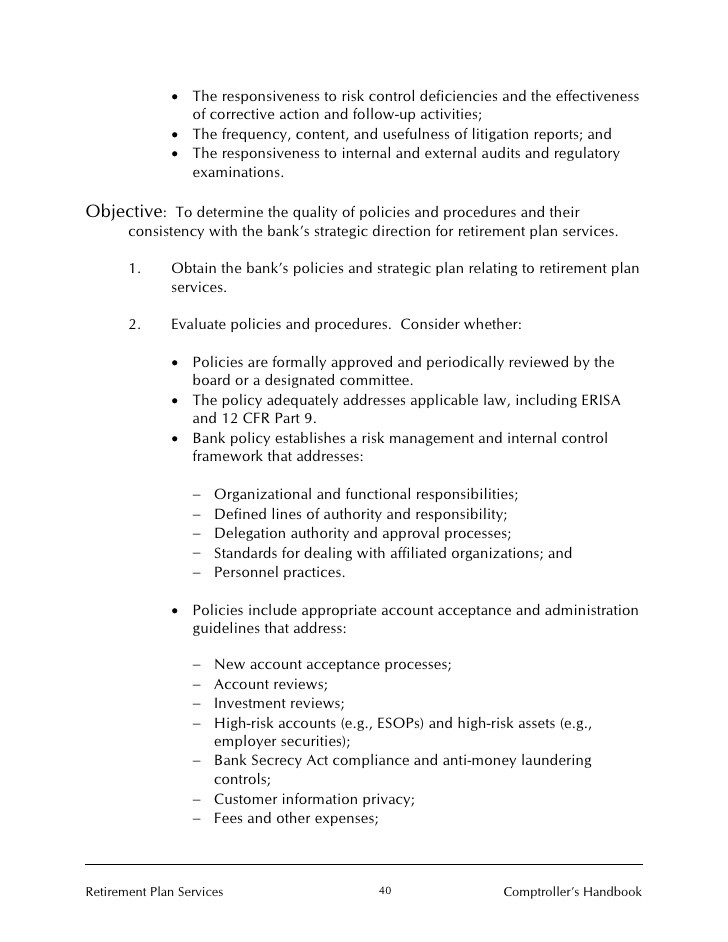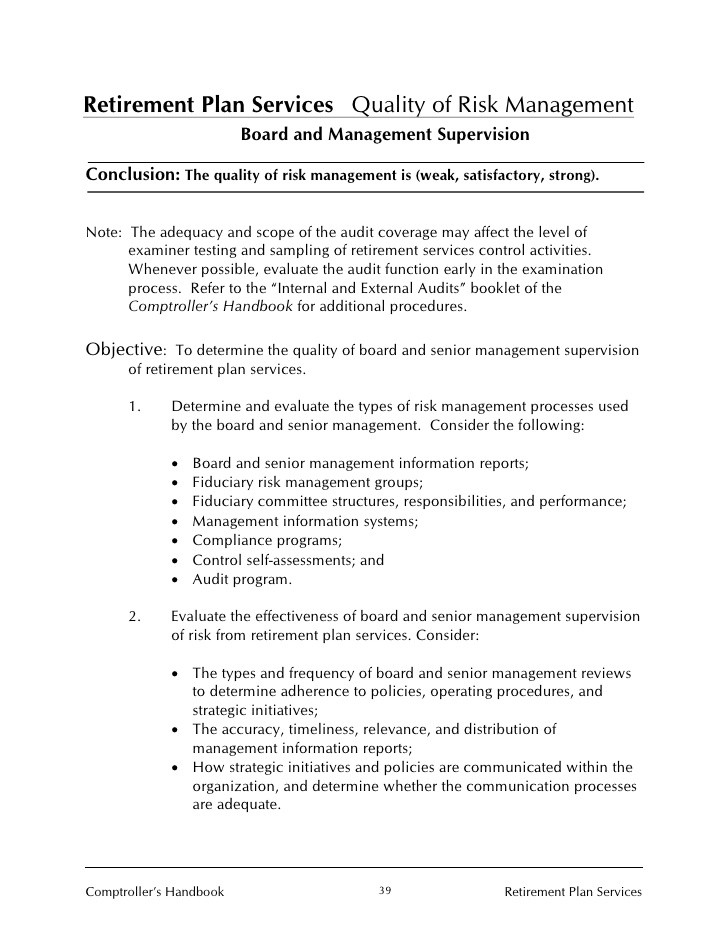DOL Issues Advisory Opinion on 12b1 Fees for Directed Trustees
Post on: 28 Март, 2015 No Comment

A recent Department of Labor Advisory Opinion indicates a directed trustee for an ERISA plan can receive 12b-1 or subtransfer fees attributable to the plan’s investment in a mutual fund without violating ERISA’s prohibitions of fiduciary self-dealing, so long as the decision to invest in such funds is made by a fiduciary who is independent of [the directed trustee] and its affiliates, or by [the plan’s participants]. Advisory Opinion 2003-09A (June 25, 2003).
The DOL reached a similar conclusion in Advisory Opinion 97-15A (May 22, 1997). But there are significant differences between the facts in the two advisory opinions. In Advisory Opinion 97-15A, the trustee specifically agreed to use any 12b-1 or subtransfer fees attributable to a plan’s investment in a mutual fund for the benefit of that plan. For example, the trustee might use these fees to offset the plan’s trustee fee. This is not the case in Advisory Opinion 2003-09A.
Additionally, Advisory Opinion 2003-09A addresses a situation in which the trustee has a proprietary relationship with some of the fee paying funds, as discussed below. The DOL did not address issues relating to proprietary funds in Advisory Opinion 97-15A.
Summary of AO 2003-09A
ABN AMRO Trust Services Company (AATSC) provides directed trustee and other services to participant-directed and other defined contribution plans (Client Plans) through bundled service arrangements. AATSC is a wholly-owned subsidiary of Alleghany Asset Management Company (Alleghany), which also is the parent organization of several institutional investment advisers (Advisers). These Advisers have investment advisory contracts with various mutual funds, which are referred to as Proprietary Funds in the Advisory Opinion.
As part of these bundled service arrangements, AATSC provides Client Plans access to various mutual fund families— including Proprietary Funds— they can offer as plan investment options. In fact, AATSC will not enter into a bundled service arrangement with a potential Client Plan that is not willing to offer at least one Proprietary Fund as a plan investment option. Furthermore, AATSC bases price quotes for potential Client Plans on estimates of how much they will invest in Proprietary Funds. These estimates are based on the amount of the potential Client Plan’s assets and the number of Proprietary Funds it selects. (According to AATSC, these types of arrangements are typical because the cost of providing plan services generally is higher than the fees bundled service providers can charge in the competitive market.)
Ultimately, Client Plans are responsible for selecting investment options, and making changes as needed. If they ask for help, AATSC may provide lists of mutual funds for Client Plans to consider. But Client Plan fiduciaries are free to choose any Proprietary or Non-Proprietary Funds, whether they appear on the list or not.
AATSC receives 12b-1 and subtransfer fees from the Proprietary and Non-Proprietary Funds that Client Plans select as investment options. (A 12b-1 fee is a fee paid from mutual fund assets to cover distribution costs, such as advertising and commissions paid to dealers. Subtransfer fees are fees paid from mutual fund assets to transfer agents for recordkeeping services.) The issue is whether AATSC is violating ERISA’s prohibited transaction rules by receiving these fees under these circumstances.
ERISA’s Prohibited Transaction Rules
In general, ERISA section 406(b) prohibits fiduciaries from engaging in certain transactions with their plans. (As trustee for the Client Plans, AATSC is a fiduciary with respect to those plans.) These include dealing with the plan’s assets in the fiduciary’s own interest or for his own account and receiving any consideration for his own personal account from any party dealing with such plan in connection with a transaction involving the plan’s assets. However, a fiduciary generally does not violate these prohibitions unless it uses the authority, control, or responsibility which makes such a person a fiduciary to cause the plan to engage in the transaction. See DOL Reg. Sec. 2550.408b-2(e).

Based on the representations AATSC made to DOL for purposes of requesting the Advisory Opinion, the DOL concluded AATSC could receive these 12b-1 and subtransfer fees without violating ERISA section 406(b). Even though AATSC is a fiduciary with respect to its Client Plans, other fiduciaries independent of AATSC— or the Client Plan’s participants— are making the decision to invest in these funds. As such, AATSC, as a directed trustee, is not using any of the authority, control, or responsibility that makes it a fiduciary to cause the Client Plans to invest in the Proprietary and Non-Proprietary Funds.
But, the DOL warned, if AATSC also provided investment advice as defined in ERISA Reg. sec. 2510.3-21(c), ATTSC would violate ERISA sec. 406(b)(1)’s ban on prohibited transactions. For these purposes, investment advice is defined as providing investment advice or guidance if the adviser has either (1) discretion to purchase or sell securities for the plan or (2) renders advice individualized for the plan and such advice serves as the primary basis for the plan’s investment decisions.
The information in this Washington Bulletin is general information only and not intended to provide advice or guidance for specific situations. Contact your Deloitte advisor for information regarding your specific circumstances.
If you have questions or need additional information about this article and you do not have a Deloitte advisor, please contact Martha Priddy Patterson (202.879.5634) or Robert B. Davis (202.879.3094).
Human Capital Advisory Services, Deloitte LLP, 555 12th Street NW, Suite 500, Washington, DC 20004-1207.














